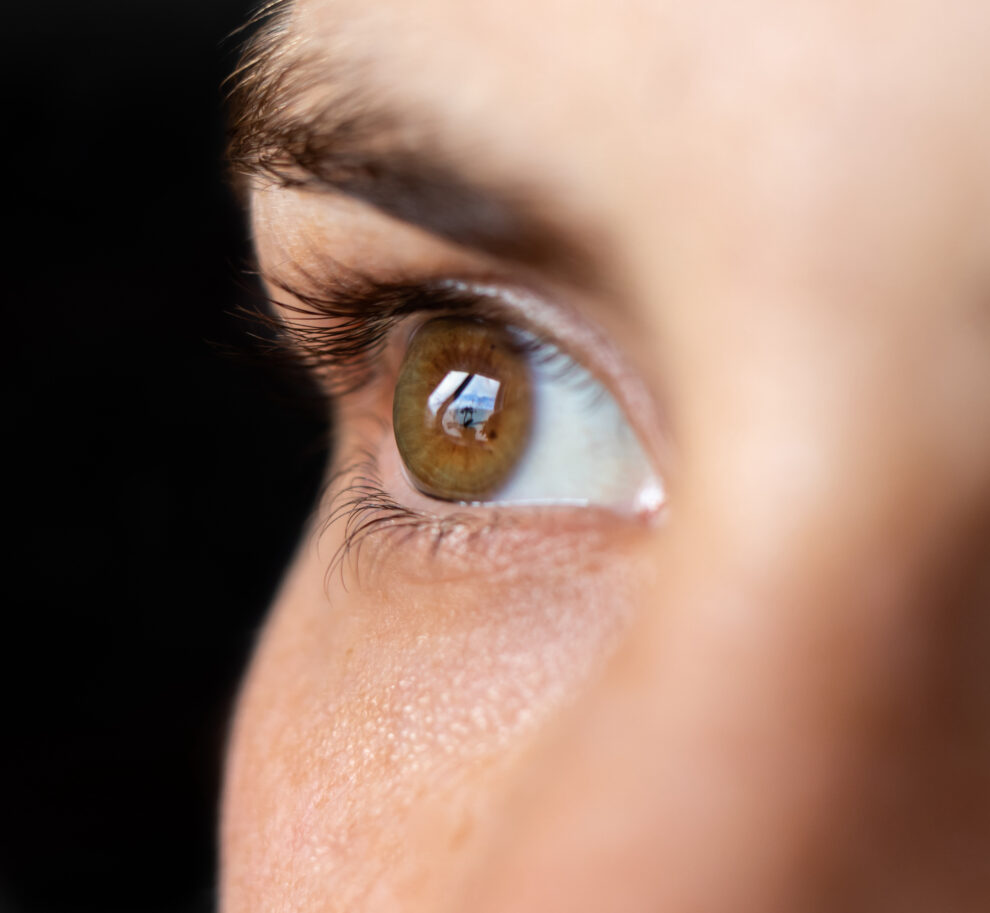Cornea

What is the Cornea?
The cornea is a vital part of the eye that plays a crucial role in focusing light and providing clear vision. Various eye conditions can affect the health and function of the cornea, but several treatment options are available to preserve or restore vision, depending on the specific condition and its severity.
The cornea is a transparent, dome-shaped structure located at the front of the eye. Its primary function is to focus light onto the retina, which lines the back of the eye.
The cornea’s shape and clarity plays an important role in ensuring that light is properly focused, which allows you to experience clear vision. Maintaining the clarity of the cornea is essential for light to pass through uninterrupted and reach the retina.
Many factors, such as age, trauma, or certain eye conditions, can cause the cornea to become hazy, cloudy, or irregularly shaped. Any of these factors can cause blurry or distorted vision.
What Eye Conditions Affect The Cornea?
Several eye conditions can impact the health and function of the cornea. Some of the most common conditions include:
Keratoconus
Keratoconus is a progressive eye condition that causes the cornea to thin and bulge into a cone-like shape. This abnormal shape affects the eye’s ability to focus light properly, leading to distorted and blurred vision.
Symptoms may include increased sensitivity to light, eye strain, and frequent changes in glasses prescription.
Conjunctivitis
Conjunctivitis, more commonly known as pink eye, is an inflammation of the conjunctiva. While it primarily affects the conjunctiva, it can also involve the cornea in some cases.
Pink eye can be caused by viruses, bacteria, or allergens. Symptoms often vary depending on the type and severity of pink eye you have but may include redness, itching, tearing, discharge, and a gritty feeling in the eye.
Dry Eye
Dry eye is a very common eye condition that happens when the eyes do not produce enough tears or when the tears evaporate too quickly. This condition can lead to irritation and inflammation of your cornea.
Dry eye can cause many symptoms including a burning sensation, itching, redness, and a feeling of dryness or grittiness in the eyes.
Herpes Zoster
Herpes zoster, also known as shingles, is an infection caused by the varicella-zoster virus. When shingles affect the face, particularly around the eye, it can cause corneal problems such as inflammation and scarring, resulting in pain, redness, light sensitivity, and blurred vision.
Sometimes, corneal issues can arise months after the shingles rash has resolved. For this reason, those who have experienced facial shingles should always schedule an appointment with their eye doctor to detect and treat potential complications right away.
What Treatments Are Available for Corneal Conditions?
Several treatment options are available for corneal conditions, depending on the specific disorder and its severity. Some of the most common treatments include:
Corneal Transplant
A corneal transplant is a surgical procedure that replaces a damaged or diseased cornea with healthy donor tissue. This procedure is often recommended when the cornea’s condition has deteriorated to the point where it significantly affects vision and quality of life.
Corneal transplants aim to restore vision, reduce pain, and improve the overall health of the eye. At Carolina Cataract & Laser Center, our skilled surgeons perform several types of corneal transplants, including:
Corneal Collagen Cross-Linking (CXL)
Corneal collagen cross-linking, sometimes called CXL, is a treatment that combines special eye drops and ultraviolet light to strengthen the cornea and stop the progression of keratoconus. By creating new corneal collagen cross-links, CXL shortens and thickens the collagen fibrils, resulting in a stronger cornea.
While CXL does not cure keratoconus or improve vision, it can prevent further deterioration and reduce the need for a corneal transplant.




